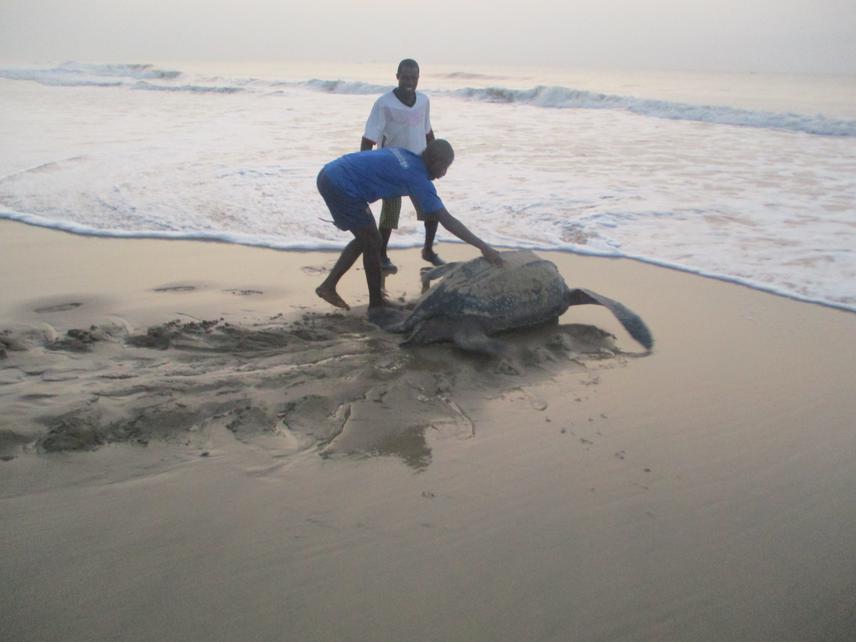Andrews Agyekumhene
Other projects
19 Jun 2015
Working with Fishing Communities to Reduce Sea Turtle By-Catch in Gill Net Fishery along the Central Coast of Ghana
Ghana is home to five species of sea turtles, but unfortunately these species face capture in fisheries, harvesting, egg poaching, disorientation by light, and degraded habitat from pollution and sand mining. Efforts by government and local communities are hindered by lack of logistics and financial resources. Therefore, sea turtle threats in Ghana continue to rise with no apparent improvement at the government or community levels. These increased threats require immediate attention from coastal communities and government agencies that are mandated to protect the nation’s wildlife. This project will complement the efforts by Ghana Wildlife Division (GWD) to protect the species.

Local fishermen helping a leatherback to sea after release from a fishing nets. © Prince Yankson.
West Africa provides important foraging and nesting habitats for five species of marine turtles. Furthermore, the region serves as a convergence zone for genetically diverged populations from the northern and southern Atlantic Ocean. Unfortunately, these animals face a high number of anthropogenic mortality risks from:
(a) intensive near-shore fishery by-catch,
(b) direct harvest of nesting turtles,
(c) reduced nest success due to pig and dog depredation events and
(d) destruction of habitat through pollution and sand mining.
Although Ghana has formal wildlife laws that protect wildlife, the utility of such regulations is limited by poor enforcement, inadequate education, and a desperate need for food in these impoverished coastal communities. This project will work directly with the Ghana Wildlife Division (GWD), community fishermen, school teachers, business owners, and village elders to strengthen sea turtle conservation through a participatory management strategy that integrates traditional knowledge and taboos with government protection. We provide the resources, training, and guidance necessary to enhance protection while simultaneously improving the local economy. This proposal is for continued funding of a project that previously received funding from RSG to support sea turtle by-catch reduction, education programs and workshops, and increased participation by providing support.